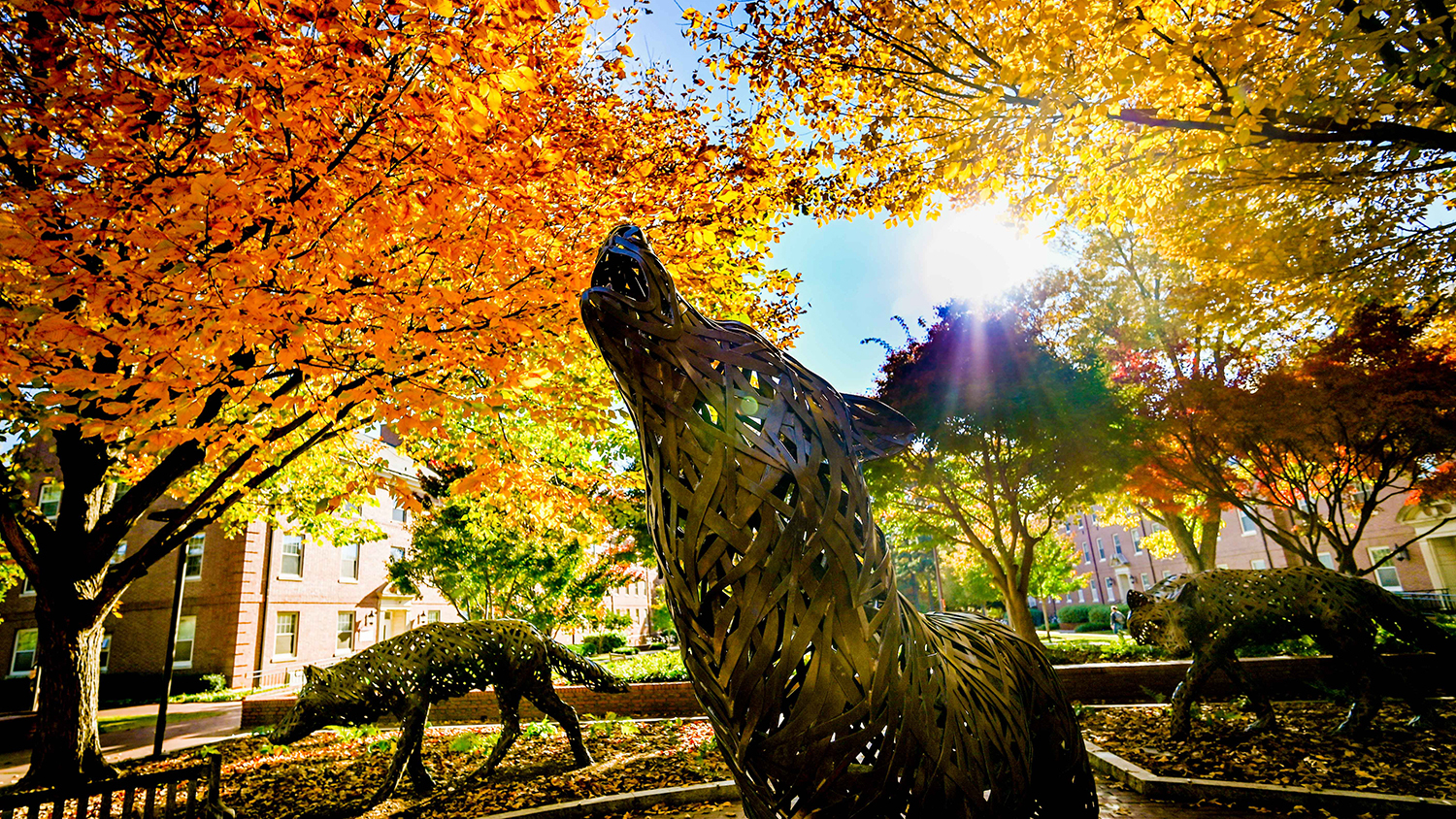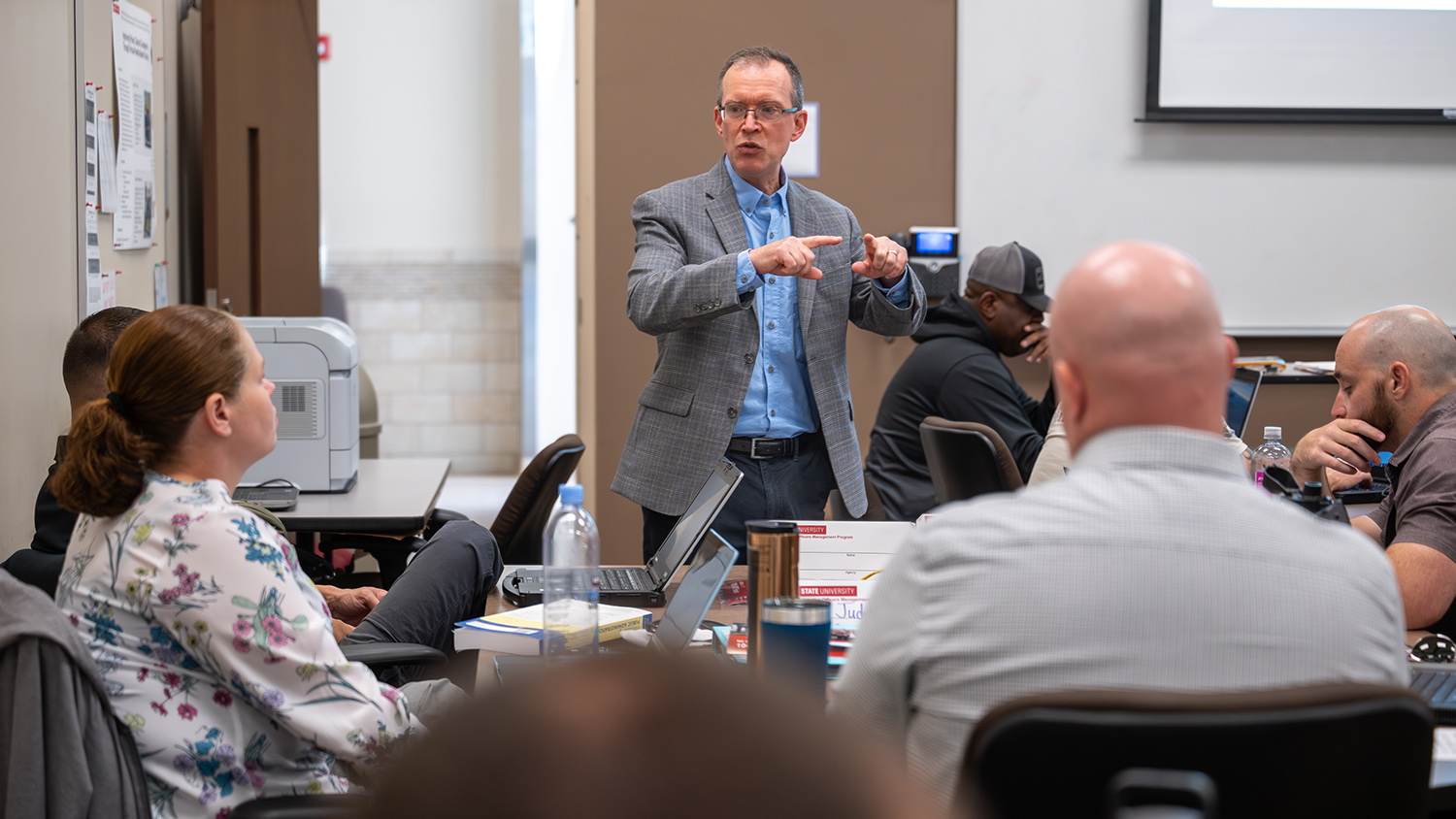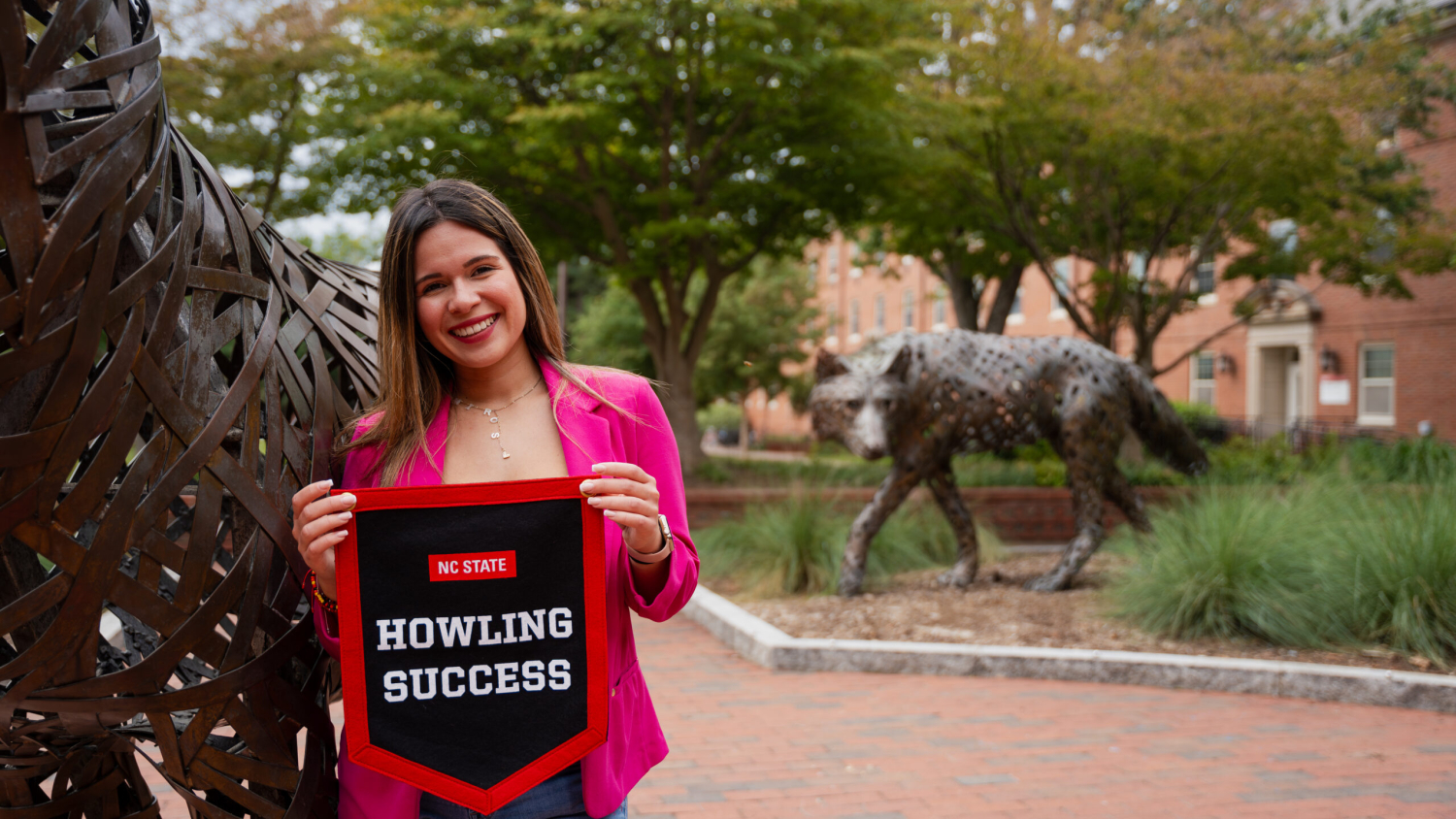Forming Critical Thinkers
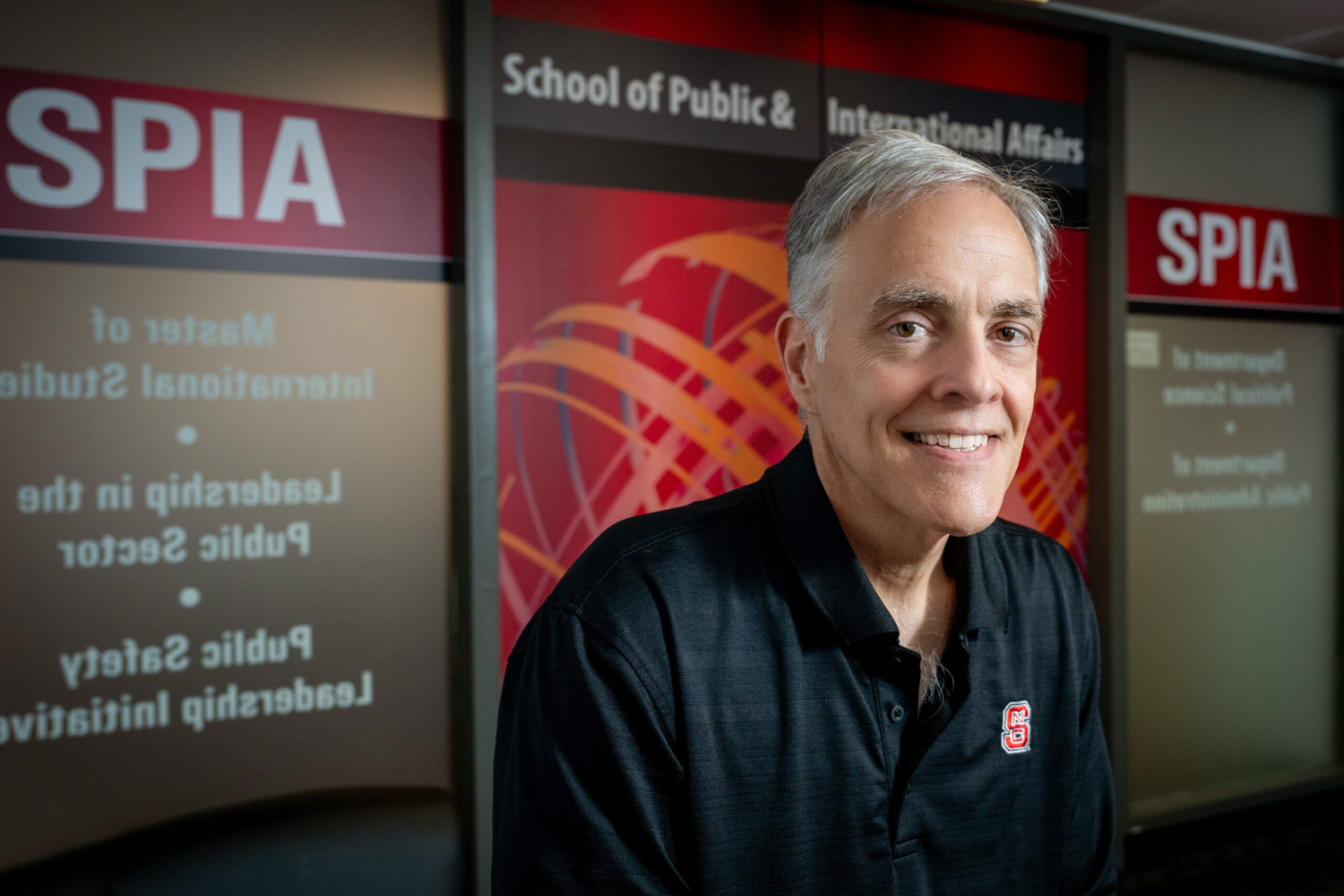
Irwin Morris believes that the path to becoming an engaged critical thinker begins with our own personal stories. Being curious about lived experiences helps form insights and hypotheses about the world around us.
“I’d like for students to … understand that a story might be an on-ramp to a theory,” Morris said.
Many NC State students benefit from Morris’ insights, whether by taking his classes, working on a research project together or simply wandering through his always-open office door for an informal conversation.
As the William T. Kretzer Distinguished Professor in Humanities and the Executive Director of the School of Public and International Affairs, Morris oversees faculty and students across three undergraduate degrees, three graduate programs and three graduate certificates. Aided by the private funding from the professorship, these programs encourage students to understand, explore and engage tomorrow’s issues of leadership and public affairs.
The School of Public and International Affairs — housed in the College of Humanities and Social Sciences — was created in 2006. Morris is administratively responsible for all of SPIA’s programs, which consists of two academic units: the departments of political science and public administration.
Those departments are home to two undergraduate degrees in political science, a Leadership in the Public Sector undergraduate degree — ranked top four in the nation — both a master’s and Ph.D. in public administration and a master’s degree in international studies. SPIA also offers graduate certificates in nonprofit management, policy analysis and nuclear nonproliferation science and policy. The Public Safety Leadership Initiative rounds out the enumeration.
Driven by Curiosity
Morris leads by example when it comes to applying a personal story to a theory. It was by looking back on his own life that he formed the idea for his most recent book, an award-winning piece on southern politics.
Morris lives in Cary today but he grew up near Richlands, a small town in southwest Virginia. In the late 1960s, the time he was born, Richlands and Cary had similar populations.
While the population of Richlands still hovers around 5,000 today Cary’s has skyrocketed to more than 180,000. Interestingly, the politics of each area have flipped. While Richlands has moved from Democratic to extremely Republican, Cary/Wake County did the opposite, from relatively Republican to relatively Democratic.
Morris began researching if this phenomena could be true for other areas across the South. The result became Movers and Stayers: The Partisan Transformation of 21st Century Southern Politics, a detailed look into how the trajectory of movement transforms southern towns politically.
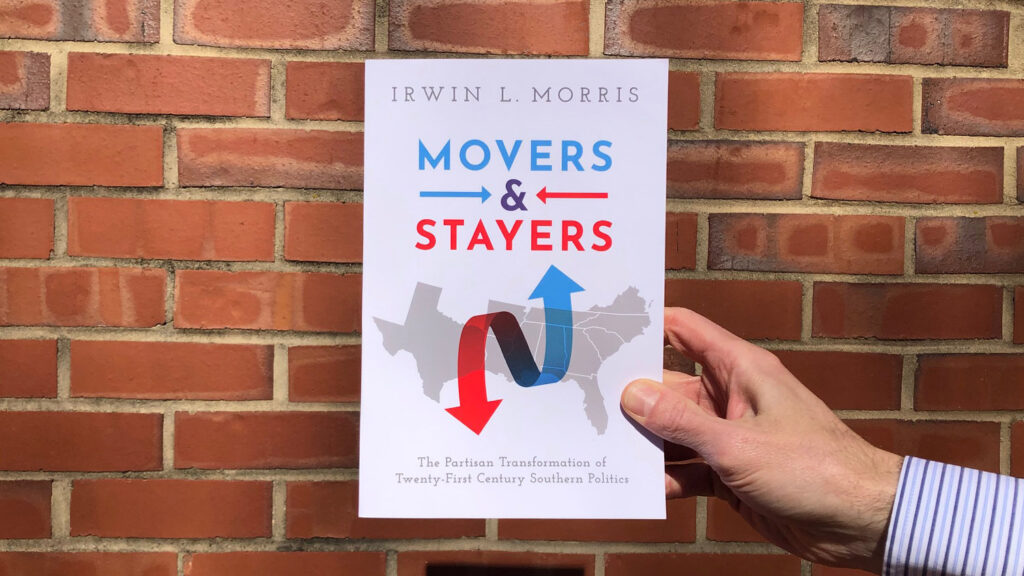
“One of the things I thought about was that those places I’ve lived in the South and the places my parents lived in the South that have gotten bigger have different politics than places that have gotten smaller,” Morris said. “And on average, places that have gotten bigger tend to be more progressive than they were 20-25 years ago, and places that have gotten smaller tend to be more conservative. That’s particularly true for majority white areas.”
The book distinguishes the “movers”, those who move into the South from elsewhere or move away from their southern hometowns, from the “stayers”, those who stay put. When the “movers”, who are typically younger, more highly-educated and more racially diverse, uproot, they tend to settle in areas that are more progressive and go on to influence those areas.
As the “movers” leave, the towns they leave behind become demographically older, less educated and more white.
Taking these data into account, Morris’ study found that while there are alternatives to more progressivism for places that are getting larger, the majority-white areas that are getting smaller, with very few exceptions, are more conservative.
He concludes that just looking at the population where someone lives is not a good measure of that area’s politics. Instead, a better framework is to look at an area’s trajectory of movement.
In 2022, Morris’ book won the V.O. Key award for the best book on southern politics. The award’s namesake is considered the father of this subfield of American politics.
“It was a huge deal,” Morris said. “Just the recognition of a group of scholars to say, ‘we were paying attention to your work and we find this interesting and useful.’ It meant a lot.”
Forming Critical Thinkers
No matter what profession a SPIA student chooses, Morris understands that forming the ability to think critically is undeniably important. Because the transition to the working world for his students isn’t always as straightforward as for, say, students in the College of Engineering, he emphasizes their need to be well-rounded and open-minded.
| Undergraduate Programs | Graduate Programs | Graduate Certificates |
|---|---|---|
| B.A. in Political Science | Master of Public Administration | Nonprofit Management |
| B.S. in Political Science | Master of International Studies | Policy Analysis |
| B.A. in Leadership in the Public Sector | Ph.D. in Public Administration | Nuclear Nonproliferation Science and Policy |
“I think we’ve come to realize it’s not enough to provide [students] with the tools to be successful once they graduate. Instead, it’s helping them transition to a successful professional environment,” Morris said.
For example, there is a tendency for undergraduate students studying political science to want to go to law school after graduating.
“I’m usually like, that’s great. But first of all, if I ask you, ‘What do you want to do when you get out of college?’ I’m never satisfied with ‘Go to law school’. Law school is not a job. Law school may lead to a job, but please convince me that you want a job that you actually need to go to law school for,” Morris said.
To alleviate this tendency, Morris encourages his students to think early on in their collegiate years about the skills they might need to develop in order to prepare for alternatives in case they decide not to go to law school.
“If that leads to getting a minor in nonprofit studies, taking a minor in Spanish, or applied statistics, then I think that’s a useful conversation,” Morris said.
A Wide Range of Effects
Ironically, Morris wasn’t always interested in southern politics. His master’s thesis and dissertation were both on monetary policy and he didn’t teach his first course on southern politics until he was in his fifties. It was a burgeoning curiosity in the subject, though, that was one of the reasons he came to NC State in the first place.
Before planting roots in Raleigh, Morris was a member of the faculty at the University of Maryland for nearly 20 years. Then, in 2019, he accepted the position as the SPIA Executive Director in the College of Humanities and Social Sciences.
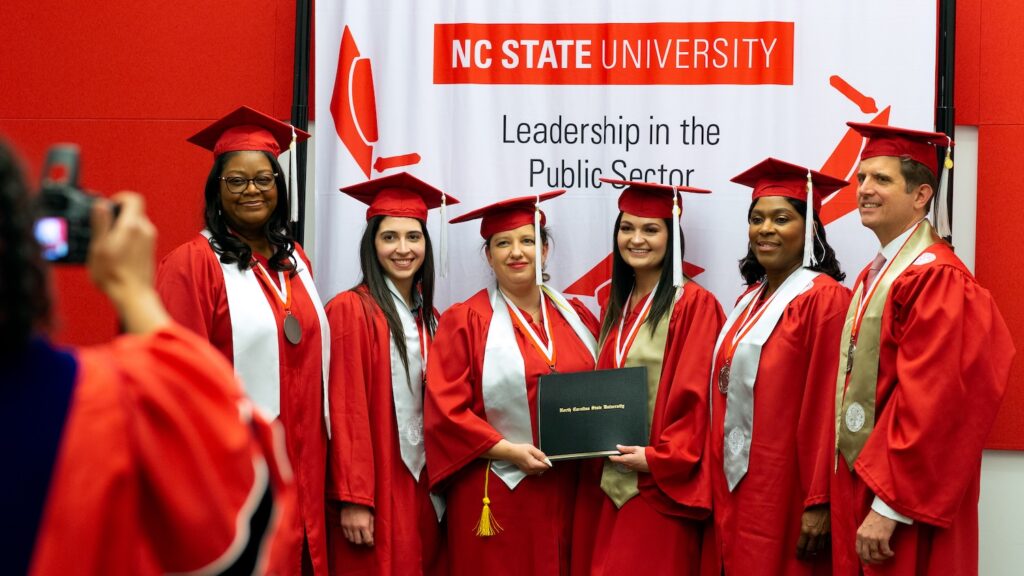
NC State had three main selling points: one was that Morris’ wife was born in Raleigh and had grown weary of the Maryland snow. Another was that North Carolina, rightfully, generates much more interest in southern politics than its northern neighbor. However the third — and chief — reason was being offered the William T. Kretzer Distinguished Professorship.
“I’m pretty sure I would have come anyway,” Morris said. “But that sealed the deal. [The professorship] has been instrumental in my work here.”
Deanna Dannels, the dean of the College of Humanities and Social Sciences, understands the draw of distinguished professorships. Not only do they positively impact faculty, they directly affect students, too.
“The market for outstanding faculty such as Dr. Morris is intensely competitive, and professorships greatly boost our efforts to attract and retain leading scholars who can elevate our academic community,” Dannels said. “Professorships not only bring the best and brightest faculty to NC State; they also enhance our student recruitment efforts and classroom experiences. When students know they get to work with top innovators in the field, they want to join our university.”
While Morris has certainly used some of the professorship funding to elevate his profile as a researcher through attending national conferences and purchasing the latest academic materials published by his peers, much of the funding’s impact is felt directly by students.
For example, Morris was able to hire a graduate student for data analysis work in Movers and Stayers by using some of the professorship funds. Without that student’s help, he doubts he would have finished it in the same time frame and even whether he could have won the Key award. He’s also hired undergraduates for summer research, invited speakers to campus and completed a survey on political violence with a graduate student.
Opportunities like these give students the valuable hands-on experience they need to be prepared for next steps after graduation.
“I think we are fortunate to have students who are really ambitious about what they’d like to do in the public sector, whether they’re focused on their local communities, state communities, national communities, international communities,” Morris said. “And we provide them with the building blocks, the tools, to go out and do that work.”
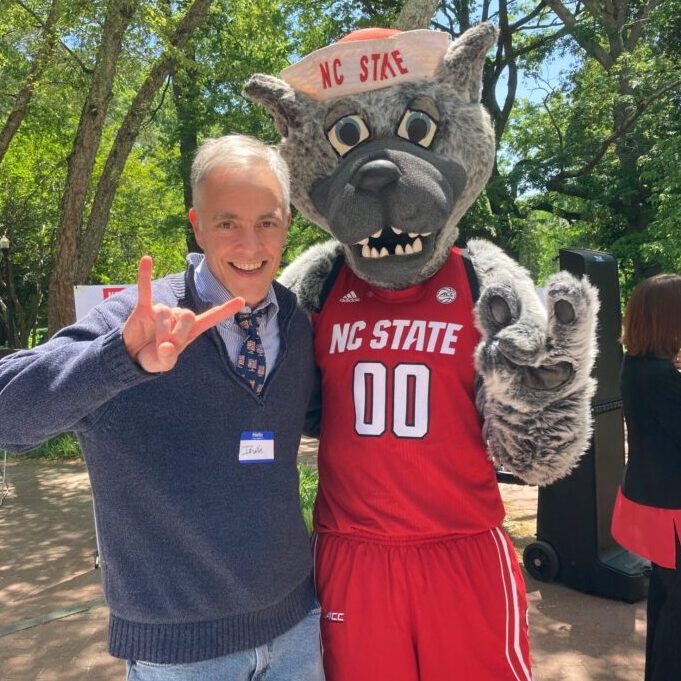
Five years into his position, Morris is really proud of all that’s been accomplished under his watch, even while he is quick to credit his colleagues and staff for the success. From seeing the LPS program jump dozens of spots in the rankings each year to watching the number of political science applications rise nearly 40 percent to talking with alumni and realizing the esteem with which they hold their alma mater, Morris has witnessed the energy of the Wolfpack.
“I don’t think I’ve ever been any place, and I would include my time as an undergraduate and graduate student, where the attachment is so strong,” Morris said. “Nothing against the other institutions, they were probably all above average, but NC State’s in really another level of attachment and that has been very attractive.”
This post was originally published in Giving News.
- Categories:
